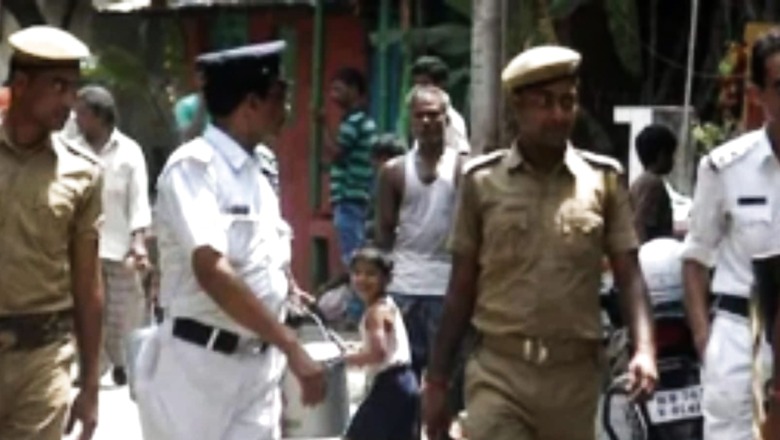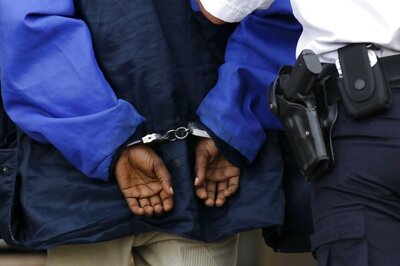
views
“Evasive”, “lukewarm response”, “calculated silence”, “making arguments in frustration after caught on the wrong foot”, “in denial mode” and “blowing hot and cold” — these are the terms used in the Calcutta High Court’s damning judgment to describe the conduct of the Mamata Banerjee government regarding the post-poll violence in the state this May.
The West Bengal government is unhappy with the court’s decision to hand over the murder and rape cases during the violence to the Central Bureau of Investigation (CBI), but it should rather respect the judgment and let law take its own course in an effort to show that the state has nothing to hide. In a situation where the violence is alleged to be state-sponsored and directed at the political opponents of the Trinamool Congress after the latter’s election win, a state police probe will fail to inspire any confidence among the people. The chief minister had initially tried to downplay the scale of the violence, an approach which itself compromised the police action.
The High Court judgment strikes a good balance by transferring the more heinous cases of murder and rape to the CBI and rest of the assault and property destruction cases to a Special Investigation Team comprising three officers from the West Bengal cadre. Both these probes will be court-monitored, the judgment says. The CBI may not have covered itself in glory in many such cases involving political connotations but the premier agency still remains the best bet to carry out a scientific evidence-based probe that could inspire confidence amongst the public at large. A court-monitored probe also carries more sanctity and will encourage victims to come ahead with no fear.
The conduct of the West Bengal Police so far in handling the post-poll violence cases clearly left much to be desired and the state government has no one but itself to blame for inviting the CBI scanner after relative inaction over three months. Sample this — the court judgment noted that the final report of the NHRC indicated that hardly 14% of the accused named in the FIRs lodged by West Bengal police were arrested and out of those arrested, 80% were released on bail. “Effectively speaking, only 3% of the accused named are in jail,” the judgment has noted.
The state government’s energies in fact seemed to be devoted more towards blunting the NHRC report by filing a rejoinder document running into 10,000 pages, which the court has described as an effort to “side track or confuse the issue.”
The West Bengal government even tried to block the NHRC exercise in the first place after the court ordered one on June 18, and the states filed for a stay on the order. The court order dismissing the same saying that the way the state was proceeding in the matter which required immediate action, “did not inspire confidence.” In the 20 cases of murder that have been sent to CBI for probe, the court noted that the state’s response was “lukewarm”. The court said proper steps had also not been taken by the state to probe 13 heinous crimes of rape against women, calling it a “glaring example of inaction by the state.” All of them also go to CBI.
“Strange contentions have been raised (by the state) that the NHRC Committee was to submit the medical reports in cases of crime against women as if it was not the duty of the police to carry out that exercise immediately when the offence was reported. In fact, this shows that a calculated silence was maintained to let the evidence be destroyed,” the HC has noted regarding the rape cases. Under the present law, which was made stricter after the Delhi’s December 16 gang-rape case, investigation of rape cases is to be of high standard and are time-bound with mandatory recording of statements under 164 CrPC of the victim before a court, something the CBI religiously does. This seemed lacking in the West Bengal probe so far.
The post-poll violence was state-wide involving heinous crimes and targeting of persons who had not supported the party in power, the court judgment notes. Social boycott, exodus and destroying of property of political opponents have also been recorded as the nature of cases in the court judgment. “Three months have lapsed no concrete action has been taken by the state, which could inspire confidence except filing affidavits and placing on record thousands of papers,” the court said, justifying a CBI and SIT probe to inspire confidence amongst the victims.
The Bengal government may accuse the CBI of being the Centre’s “puppet” and claim a CBI probe politically-motivated but the fact remains such a probe is the best chance for the victims to get justice and the TMC government should not block it.
Read all the Latest News, Breaking News and Assembly Elections Live Updates here.



















Comments
0 comment